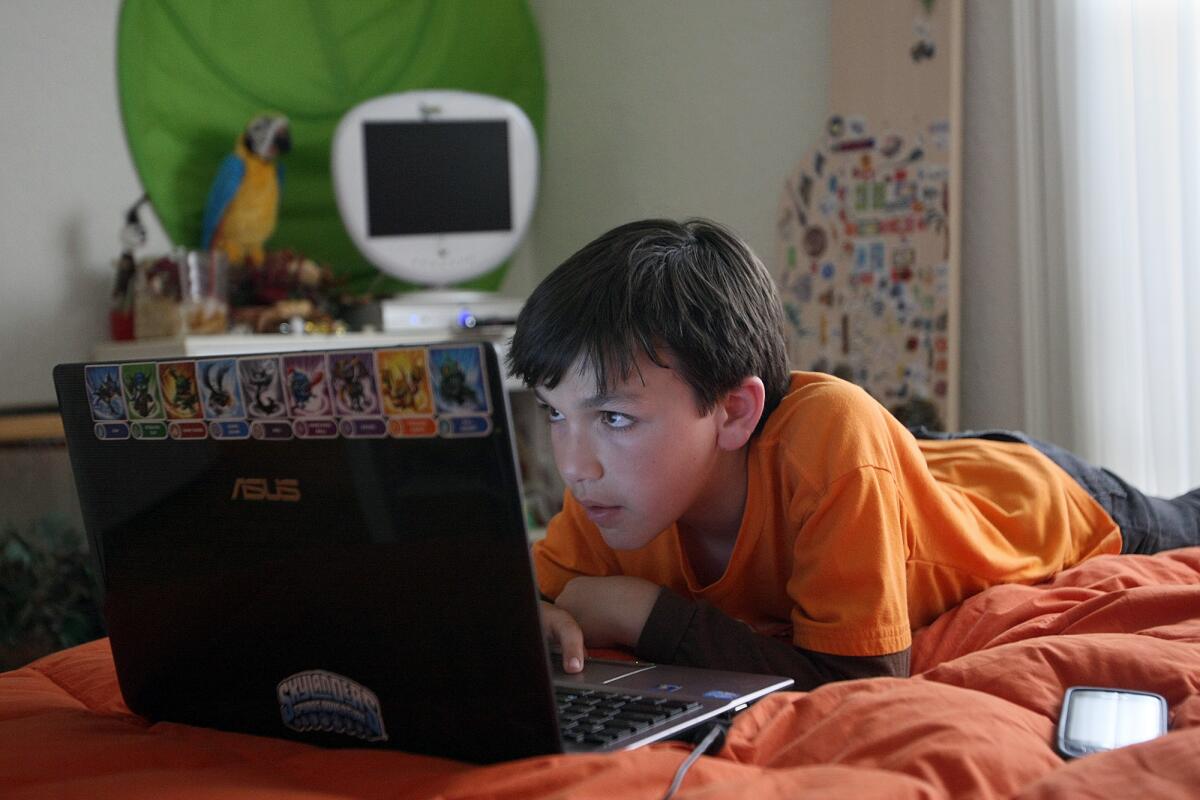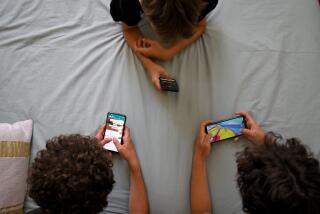Will a smartphone-free bedroom help your kid sleep longer?

If you want your kid to sleep better, consider taking the smartphone away from them at least an hour before they fall asleep.
And by away, I mean, all the way away -- to a different room entirely.
Kids who sleep with smartphones by their bedside get less sleep on average than kids who fall asleep in a smartphone-free environment, according to a new study in the journal Pediatrics.
“I don’t think that all screen time is ubiquitously bad, but definitely recreational screen time should be limited. Parents can set a screen or device curfew one hour before bedtime,” said Jennifer Falbe, a researcher at UC Berkeley’s School of Public Health and the lead author on the paper.
Falbe found that fourth-graders and seventh-graders who sleep near a small screen (cellphone, smartphone, iPod touch) get an average of 20.6 minutes less sleep than those who did not have one of the devices in their bedroom.
That means sleeping in the same room as a small screen has more of an impact on kids’ sleep than if they slept in the same room as a large screen. Children who had TVs in their bedrooms reported getting 18 fewer minutes of weekday sleep compared to their peers with no television in their room.
Falbe, who has studied the impact of screens on obesity and diet quality, said she was not surprised by the findings.
“It was actually exactly what I expected,” she said.
The study was based on data collected in 2012 from more than 2,000 ethnically and racially diverse fourth- and seventh-graders from two schools in Massachusetts.
Fifty-four percent of the students interviewed reported sleeping near a small screen. These students were not only more likely than their peers with no screens in their rooms to get less sleep, they were also more likely to complain about the quality of the sleep. Having a TV in their bedroom did shorten their sleep time, but it did not have an affect on their perceived quality of sleep, Falbe and her colleagues report.
The paper provides three possible reasons that small screens may be more disruptive for sleep than large screens. The researchers note that people tend to hold small screens close to their face, which may delay melatonin production more than the light from a television that is several feet away.
They also note that watching TV is a passive observation. Playing video games on an iPod Touch or a smart phone is more interactive, which can increase cognitive and emotional arousal.
And lastly, researchers say that because most small screen devices have audible alerts for new text messages or other notifications, they may be more likely to wake an already sleeping child.
In fact, those audible alerts are part of what motivated Falbe to embark on the sleep study in the first place.
“I was kind of a late smartphone adapter,” she said, “and before I got the settings right, I got woken up in the middle of the night because of a text or email alert, and it was stressful -- I felt I had to check it so I didn’t miss something for work or school.”
Science rules! Follow me @DeborahNetburn and “like” Los Angeles Times Science & Health on Facebook.







